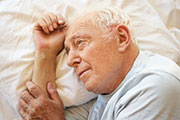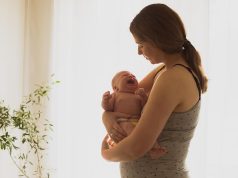Researcher says cause and effect can’t be proved, but link between the two conditions is strong
TUESDAY, May 19, 2015 (HealthDay News) — Men with obstructive sleep apnea appear to have a higher risk of depression, new research suggests. The findings were scheduled for presentation at the annual meeting of the American Thoracic Society, held from May 15 to 20 in Denver.
Carol Lang, Ph.D., a research fellow in the department of medicine at the University of Adelaide in Australia, and colleagues evaluated 857 men for the study. Their ages ranged from 35 to 83, and the average age was 60. During the five-year study period, the men were evaluated twice for depression. They underwent sleep lab studies to see if they had obstructive sleep apnea as measured by the apnea-hypopnea index (AHI). Those with an AHI score of 30 or greater were classified as having severe sleep apnea.
Men with undiagnosed, severe obstructive sleep apnea had more than double the risk of depression compared to those without sleep apnea, Lang told HealthDay. Men who had both undiagnosed, severe apnea and excessive daytime sleepiness had an even greater risk of depression. Their risk of depression was up to five times greater.
Lang said she can’t explain why these conditions seem to be linked. “Many of the symptoms of obstructive sleep apnea and depression overlap, such as tiredness, fatigue, daytime sleepiness, low vitality, and poor concentration,” she said. The two conditions also share some common risk factors, such as advancing age.
Copyright © 2015 HealthDay. All rights reserved.








